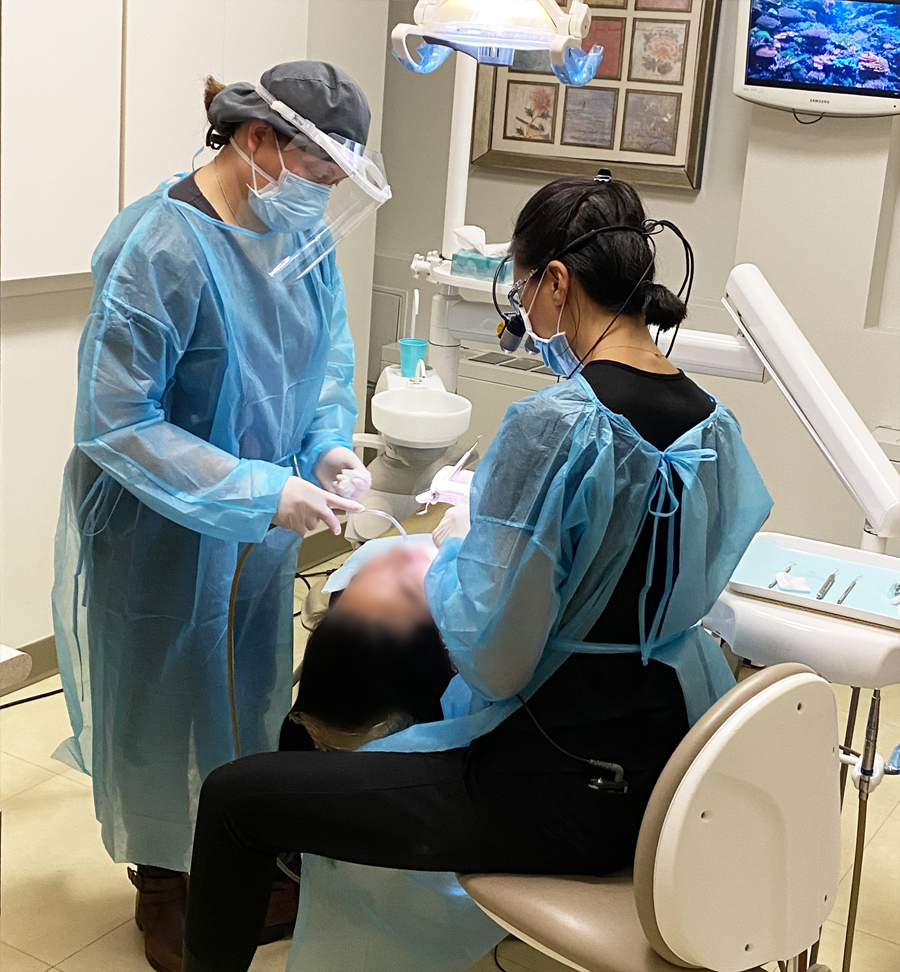Why You Must Choose a Neighborhood Dentist Eugene for Personalized Treatment
Why You Must Choose a Neighborhood Dentist Eugene for Personalized Treatment
Blog Article
Discover Common Dental Troubles That Dentists Can Treat Properly
Dental health is a critical aspect of total well-being, yet common concerns such as tooth cavities, gum illness, dental caries, tooth sensitivity, and misaligned teeth frequently go neglected. Each of these problems can substantially affect not only oral health but additionally daily comfort and confidence. The good news is, developments in dental care have made it possible for dentists to address these problems properly through different treatments. From regular cleansings and fillings to orthodontic interventions, the options readily available today are both detailed and obtainable. What are the specific treatments readily available, and exactly how can they recover optimal oral health?
Dental Caries
Dental caries, additionally called tooth decays, are one of the most widespread dental issues impacting people of all ages. They occur when the enamel, the hard external surface area of the teeth, is worn down by acids generated by bacteria in the mouth. These bacteria grow on sugars and starches from food and drinks, creating a sticky movie called plaque that follows the teeth - dentist eugene oregon. Gradually, the acids in plaque can create tiny openings or holes in the enamel, resulting in dental caries.

Safety nets are vital in combating tooth cavities. These include maintaining great oral hygiene methods such as regular cleaning with fluoride toothpaste, flossing, minimizing sugar intake, and participating in regular oral sees. By sticking to these methods, individuals can significantly decrease their risk of establishing dental caries and maintain optimal oral wellness.
Gum Tissue Illness
Periodontal disease, additionally referred to as gum disease, is a prevalent problem that affects the tissues bordering and sustaining the teeth. It mostly occurs due to the buildup of plaque, a sticky movie of germs that bases on the teeth. If not gotten rid of through routine cleaning and flossing, plaque can solidify right into tartar, which can only be gotten rid of by a dental professional.
There are 2 primary stages of periodontal condition: gingivitis and periodontitis. Gingivitis is the preliminary, milder type, defined by red, inflamed gum tissues that might hemorrhage conveniently. At this phase, the condition is typically reversible with proper oral health and expert oral cleansings. If left unattended, gingivitis can proceed to periodontitis, a more extreme type that can result in loss of the bone that sustains the teeth.
Periodontitis entails much deeper infection and swelling of the gums, triggering the gums to retreat from the teeth and develop pockets that can become contaminated. Therapy for periodontitis typically includes scaling and root planing, a deep-cleaning procedure to get rid of tartar and bacteria from beneath the periodontals. In even more advanced instances, medical interventions might be essential to recover gum and bone wellness. Normal dental exams are necessary for very early detection and effective monitoring of gum tissue disease.
Dental Caries
Tooth decay, a widespread oral concern, materializes when the tough surface of the tooth, referred to as enamel, is damaged by acids produced by microorganisms in plaque. This procedure begins when sugary and starchy foods are taken in, giving a breeding ground for bacteria. These microorganisms metabolize the sugars to create acids, which subsequently deteriorate the enamel, bring about tooth cavities.
Originally, dental cavity could be asymptomatic, yet as it proceeds, it can bring about noticeable openings or pits in the teeth, tooth pain, and sensitivity to warm, chilly, or sweet substances (dentists eugene). If left neglected, the degeneration can pass through deeper layers of the tooth, reaching the dentin and ultimately the pulp, triggering extreme discomfort and potentially causing infections or abscesses
Early intervention is essential for optimum outcomes, making normal dental check-ups essential for recognizing and resolving imbalance problems promptly. With customized treatment plans, dental practitioners can properly bring back both the capability and appearance of an individual's smile.
Verdict
In summary, dealing with usual oral problems such as dental caries, gum illness, dental caries, tooth level of sensitivity, and misaligned teeth is essential for preserving oral health and performance. Dentists are geared up to detect and deal with these problems properly through different treatments, consisting of fillings, cleansings, orthodontics, and preventative treatment. Suitable and timely therapy can alleviate the dangers related to these dental issues, consequently enhancing overall oral health and wellness and top quality of life.
Dental health and wellness is a critical facet of total well-being, yet usual problems such as tooth cavities, periodontal condition, tooth decay, tooth level of sensitivity, and misaligned teeth usually go without treatment.Tooth decay, a click to read widespread oral problem, materializes when the difficult surface of the tooth, understood as enamel, is harmed by acids generated by microorganisms in plaque. Preventive measures such as regular oral exams, great oral hygiene practices, and a well balanced diet are important in mitigating the danger of tooth decay.
Usual elements include enamel disintegration due to aggressive cleaning, acidic food usage, or dental problems such as gum economic crisis and tooth degeneration.In summary, dealing with typical oral issues such as dental caries, gum disease, tooth decay, tooth sensitivity, and misaligned teeth is important for maintaining dental wellness and capability.
Report this page